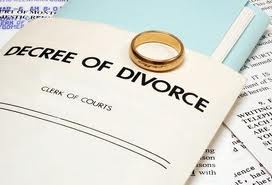Whether or not an asset is “marital” or “nonmarital” is often a key issue in a divorce. Marital assets are generally considered jointly owned by both husband and wife, and it is usually up to the court to decide how those assets will be distributed. Nonmarital assets, however, are considered owned by only one of the spouses and are generally free from distribution in a divorce. You should be aware that liabilities –debts– are treated the same way as assets.
Florida Statute 61.075 addresses this issue and defines marital and nonmarital assets. Marital assets include assets acquired during the marriage, the increase in value of nonmarital assets (if the increase is the result of contribution from both spouses), interspousal gifts during the marriage, and all benefits accrued during the marriage, such as retirement funds, pension, profit sharing, and insurance plans.
Nonmarital assets include assets acquired prior to the marriage, assets acquired during the marriage by gift or inheritance, assets excluded from being considered marital by written agreement (such as a prenuptial agreement), and income derived from nonmarital assets, unless the income was “treated, used, or relied upon by the parties as a marital asset.”
 Jacksonville Divorce Attorney Blog
Jacksonville Divorce Attorney Blog








